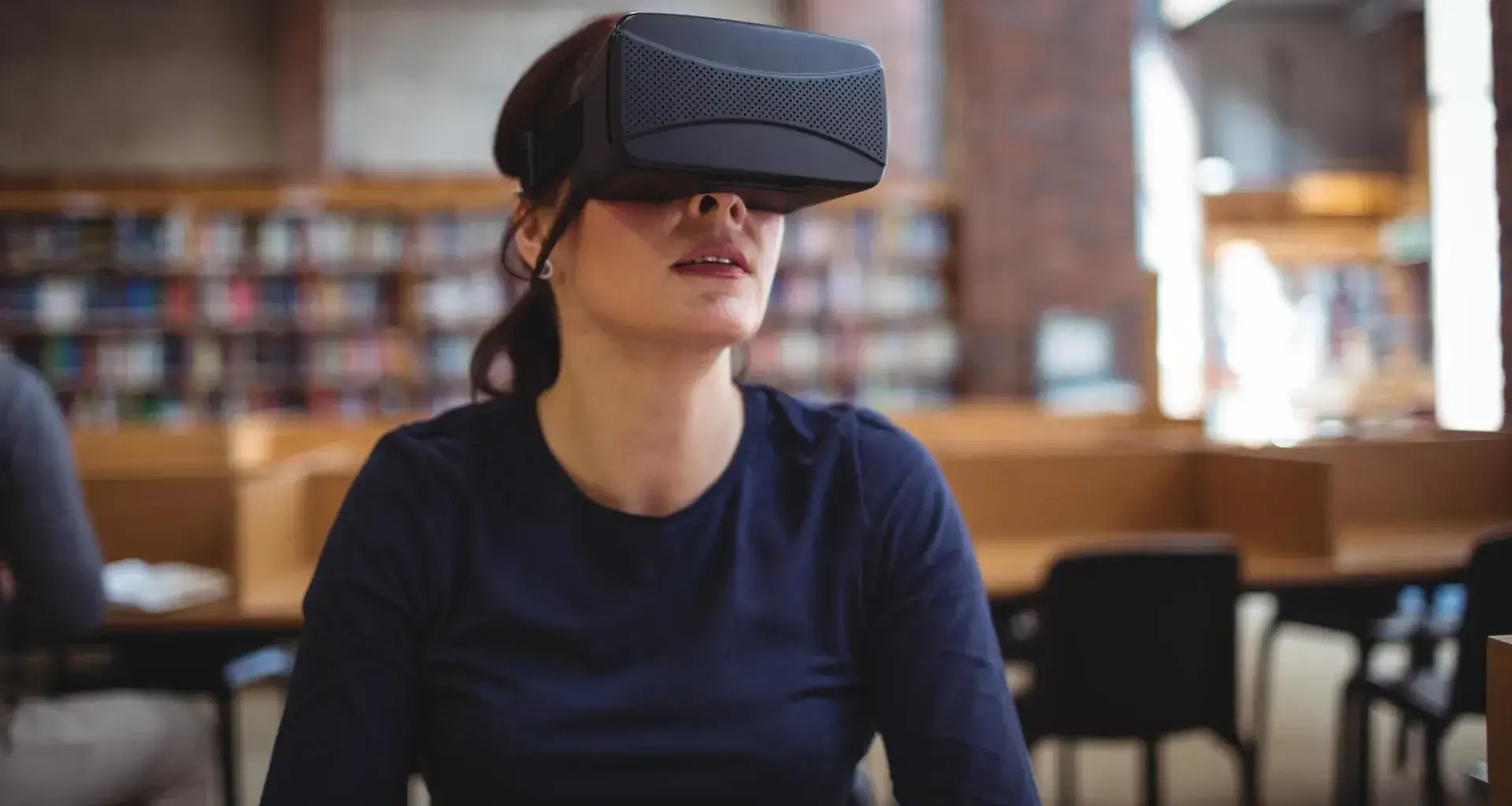Three proposals were selected at the second Novus Tríada open call for their work in educational innovation.
This open call offers grant funds from the 3 universities of La Tríada: Tec de Monterrey, the Pontifical Catholic University of Chile, and the University of Los Andes in Colombia to promote a culture of educational innovation and collaboration between these institutions.
Luis Omar Peña, leader of Experimentation and Impact Measurement at Tec de Monterrey’s Institute for the Future of Education, highlighted the way in which this year’s call reaffirms the great interest teachers have in transforming education.
“Their research initiatives, while responding to private education contexts, have the potential to generate substantial changes in the teaching and learning process,” he said.
Augmented reality in medical teaching, online tutoring, and wellness gamification were the projects carried out by professors from these 3 universities that were selected. Learn more about these projects:

1. Augmented reality for vaginal delivery teaching and care
This project is about the use of a simulation system for the teaching of vaginal delivery care based on Augmented Reality.
Its objective is to create, implement, and evaluate an online asynchronous simulation system for medical and obstetrics students.
The leading professors of the project are Fernando Ayala Aguilera, from Tec de Monterrey; Jorge Andrés Carvajal Cabrera, from the Pontifical Catholic University of Chile; and Luis Carlos Franco Ayala, from the University of Los Andes.
This project can be used to evaluate 862 medical and obstetrics students.
“The project opens the door to new applications for teaching procedures in our specialty, such as cervical cytology, endometrial biopsy, etc., which will be part of our new tasks,” professor Carvajal said.
“For our team, having been selected demonstrates the importance of our proposal as a new teaching technology; it means recognizing the importance of the topic and the novelty and promise of our project,” he added.

2. Online student peer tutoring platform
This project is about the development of an innovative platform for the training of student peer tutors.
Its objective is to create an online inter-university collaboration and training platform for institutional mentoring and skills training of tutors in Latin America.
The leading professors of the project are Eliud Quintero Rodríguez, from Tec de Monterrey; Gonzalo Nicolás Gallardo Chaparro, from the Pontifical Catholic University of Chile; and César Galindo Martínez, from the University of Los Andes.
It is planned to have an impact on the student tutoring skills of around one thousand students.
“All of us who took part are very happy and excited to carry out this project and develop resources that can be useful for different institutions in the region, aspiring toward support and collaboration between Latin American universities,” Gallardo said.
“In Latin America, we share the challenge of supporting the development of a diverse student body, transforming academic contexts into areas that are available and designed for the learning of everyone,” reflected the professor.

3. Wellness technology and gamification
This project is about the promotion of health and wellness through interactive and experiential learning supported by technological tools.
Its objective is to implement an intervention to promote the health and wellness of university students on campuses in Chile, Mexico, and Colombia, mediated by a technological application.
The leading professors of the project are Alejandro Chávez López, from Tec de Monterrey; Verónica Irribarra Pastenes, from the Pontifical Catholic University of Chile; and Carolyn Finck Barboza, from the University of Los Andes.
Its impact is the development of transversal competencies, through challenges and memorable experiences, in which 150 students learn and implement health guidelines through social interaction and gamification.
“It’s a great opportunity for students to implement healthy behaviors in their lifestyles and have the opportunity to explore their inner world through the latest techniques and strategies based on scientific evidence,” Chávez explained.
“I’m pleased to have found people committed to the promotion and implementation of health campaigns, which is a great source of inspiration and motivation to continue with the project,” he added.
“We’re very excited about the potential of the selected projects.” - Luis Omar Peña, leader at the Institute for the Future of Education.
Challenges of the open call during a pandemic
The most recurring problems this year were:
- Digital transformation during the COVID-19 pandemic hand-in-hand with digital teaching and scalable strategies for the development of the teaching and learning process.
- Difficulty in developing skills.
- Relevance of the profession and the link between acquired knowledge and one’s profession or environment.
“One of the objectives of the open call is to promote these ideas through collaboration with colleagues from Uniandes and the UC, expanding the scope not only to our countries but also into the region,” Peña said.
The 2020 call was open from December 1, 2020 to May 15, 2021 and a total of 17 proposals were presented in the areas of: medicine, psychology, engineering, education, and law, among others.
Each proposal was studied and evaluated in an evaluation period from May 20 to June 3.
The evaluating committee was composed of members of the three universities, dedicated to research, pedagogy, innovation, and teacher development.
Based on these evaluations, interdisciplinary working teams were developed that will work together to solve an educational challenge and measure its impact.
The evaluations considered the proposed impact, methodological underpinning, and feasibility.
The projects will have a grant of $30,000 dollars, distributed between the professors responsible from each university.
“We’re very excited about the potential of the selected projects. We also recognize all the participants and invite them to stay tuned for the next call,” Peña said.
YOU’LL SURELY BE INTERESTED IN READING:





